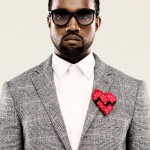 Peggielene Bartels, a naturalized U.S. citizen of Maryland who has been a secretary at the Ghana’s Embassy (Washington DC) since the 70’s recieved a call 2 years ago about the passing of her uncle who was King of a village call Otuam, in Ghana.
Peggielene Bartels, a naturalized U.S. citizen of Maryland who has been a secretary at the Ghana’s Embassy (Washington DC) since the 70’s recieved a call 2 years ago about the passing of her uncle who was King of a village call Otuam, in Ghana.
“‘We chose so many names, male and everybody, and somebody suggested that we choose your name, also. And when we poured libation and did the rituals, as soon as we mentioned your name, it started vaporing and we were surprised. So we did it three times. So that’s when we got to know that you are the king.'” A message she remembers from that early morning phone call from a relative in Ghana.
“So, when they told me, I was a little bit reluctant to accept it, because it comes with responsibilities. And here is a secretary in the United States, I have my own obligations, bills and stuff and becoming a king, you have to be really rich,” she says.
Her royal name is Nana Amuah-Afenyi VI and mostly called King Peggy. Just as many unexpected stories lead to history like the classic Rosa Park and many others, Peggy Bartels is now a story to be added to the history books as the first woman to be crown a king in her fishing community of 7,000 people in Ghana’s Central Region.
What strikes me here, is the beauty of acceptance, equality and diversity in this story. Let us be frank, this could have been a different story years back. Although she confesses that a few elderly men battle with her, for the most part the people of her village are willing to work with a woman as their traditional ruler.
We live in a world today where the color of a skin, gender type, culture or nationality shouldn’t be a factor in judging a person but who they are and what they do as a person.
We live in a world where knowledge and wisdom is not reserved to a certain group or category but exposed to those who go for it and change the world with what they have learned from it.
We live in a world where we need to understand acceptance, equality and diversity.
Orijin, Keep the culture Alive.
photo by:Eric Don-Arthur for NPR
Latest posts by cadmin (see all)
- The Story of a Ghetto Boy - June 28, 2015
- The Rise of The Next Gen. Marley’s | Bob Marley’s grandsons (VIDEO) - May 8, 2015
- Meanwhile somewhere in Sweden, these Swedish African dancers… - March 24, 2015


